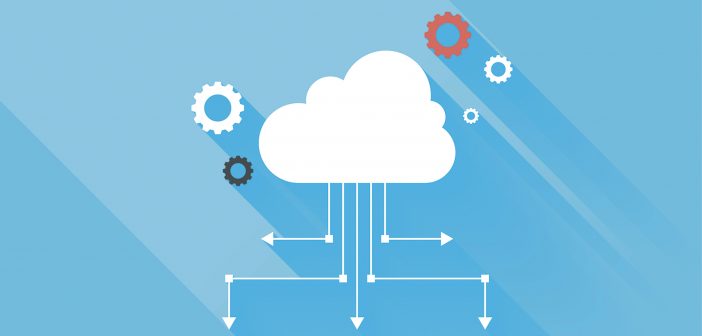The Covid-19 induced lockdowns experienced throughout 2020 amplified the need for many organisations to become more agile than ever before.
It became clear that enabling staff to work from home effectively would be imperative if organisations were to continue functioning at anything close to full operational capacity throughout the lockdown period.
This need saw the already rapid adoption of cloud accounting systems and the remote accessibility benefits they provide accelerate markedly. Some commentators suggested the forced adoption of cloud technologies that occurred through those months brought forward technology transformations that would otherwise have taken 4-5 years.
As we entered into the various levels of lockdown clear divides emerged between those businesses who were cloud enabled and using the technologies as second nature, versus those who were caught short still using desktop accounting systems held on what became inaccessible local office-based servers. We saw organisations who were already future-prepared able to take advantage of the benefits which cloud accounting provides and make smooth transitions to home-based working. On the contra those caught high and dry scrambled for solutions such as remote desktop access in order to make it through.
These remote accessibility benefits provided by cloud technologies were a game changer during lockdowns; however, the full benefits provided by cloud accounting systems are far further reaching as detailed below:
Automation
Think for a moment about a standard payables process of old. Finance staff would spend hours if not days each month collating invoices, attempting to match those invoices to corresponding POs, getting invoices signed for approval, entering them manually into their accounting system then keying them in again via online banking in order to make payment. This entire process is now automated start to finish by cloud-based accounting systems. Invoices can be ‘fetched’ directly from suppliers, digitised and entered to the accounting system without a single touch by finance staff. Those invoices are then matched against the original PO digitally and all month end payables are included in a batch payment which is then automatically uploaded to your online banking ready for payment. Additionally, the creation of purchase orders which once required handwritten dockets to be signed by senior management are now created online and filtered via matrices to the mobile devices of managers for one touch approval.
Previous manual processes associated with GST returns are gone too. Cloud-based accounting software will calculate your GST automatically for the desired period and file directly online with the IRD, removing the need for any manual calculations or doubling up of data entry when filing with the IRD.
Similar automation benefits are found in bank feeds: no longer is it necessary to manually import and reconcile bank transactions line by line into your accounting system. Cloud-based systems import bank transactions directly from your banking provider daily. Once in your accounting system, if desired, these can be automatically coded based on machine learning of your previous transactions.
Cost
Older desktop-based systems traditionally come with significant upfront costs alongside additional ongoing expenses for support services and updates. Leading providers in the cloud-based accounting space such as Xero and MYOB instead work on simple monthly subscription models where there are no long-term contracts and you cancel at any stage. The various subscriptions also provide different packages of features at different price points allowing organisations to easily scale between these packages as required.
Software updates
Cloud accounting removes the need for downloading annual updates to your desktop accounting package. With cloud accounting systems all updates occur automatically in the background when implemented by your provider, meaning your system is always on the cutting edge of new technology and there is no risk of your accounting package’s functionality becoming obsolete.
Safety and security
For those organisations who are hesitant about transitioning to cloud-based accounting systems we often find a similar set of misconceptions around what the ‘cloud’ is and the safety and security of their data. Having financial data stored in the cloud simply means it’s stored on remote servers in multiple locations which are backed up many times each day. This leads to a vastly safer and more secure system than if that data was stored locally on a single server which is often the case with desktop accounting systems.
Add-ons
Much like the app store on your Apple or Android phone, many of the larger players in the cloud accounting space have their own app stores. Xero in particular have over 800 add-on applications available, meaning you can easily customise and scale your base accounting system to tailor it for specific needs your organisation may have such as POS systems, tracking manufacturing, complex visual reporting, invoice automation or even short-term financing. Historically, desktop-based accounting packages would require significant upgrades in functionality and cost just to get the one or two of these additional features an organisation required. With add-on applications, however, you can pick and choose to create the bespoke app stack your organisation needs.
The transition process to a cloud-based accounting system is generally far simpler than most organisations expect, with finance staff taking no more than a month or two to completely embed and become comfortable with their new systems before they start singing the praises of cloud accounting.
The compelling benefits of cloud-based accounting already leave many historic desktop-based systems wanting and the gap in functionality will only continue to increase as providers of those desktop systems begin to cut support and upgrades while cloud technology only accelerates.
Cloud-based accounting is no longer a ‘new fad’ or an area of uncertainty; it’s here, it’s established and Covid-19 lockdowns showed us that organisations not embracing it are beginning to fall behind their competitors.
The comments in this article of a general nature and should not be relied on for specific cases. Taxpayers should seek specific advice.





